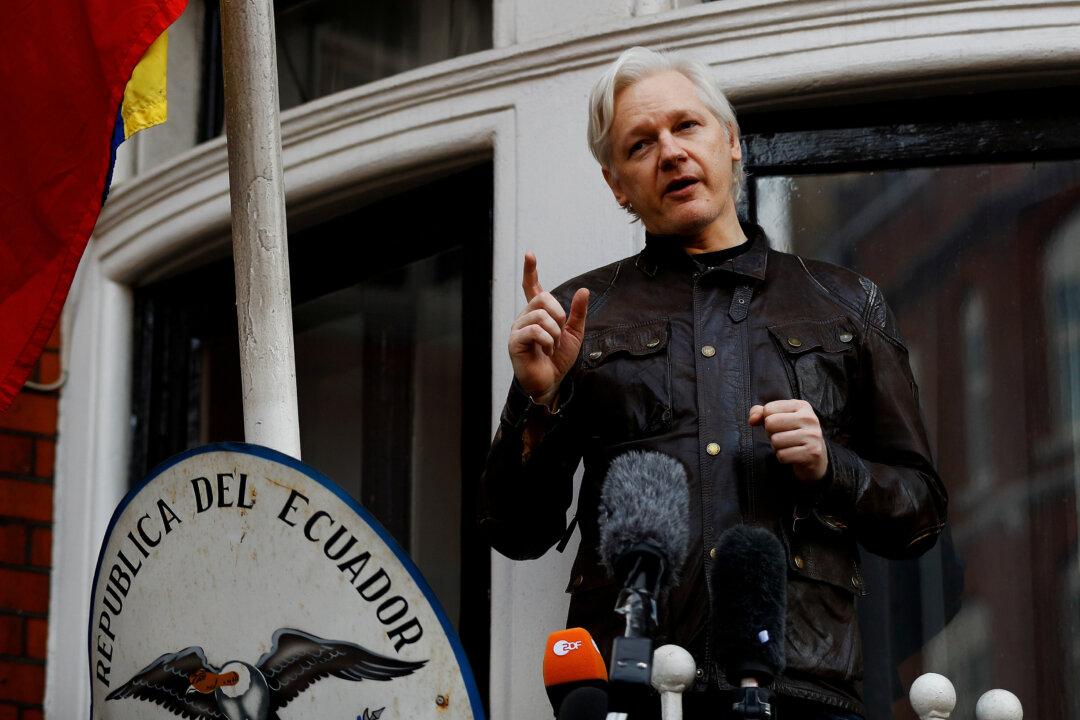Ecuador said on Tuesday, Feb. 6 that it would continue to support Wikileaks founder Julian Assange after he lost one legal bid to have a UK arrest warrant against him quashed.
Ecuadorian President Lenin Moreno called Assange an “inherited problem” but said Ecuador had made a commitment “to continue protecting the life of Mr. Assange, which we think is in danger.”





